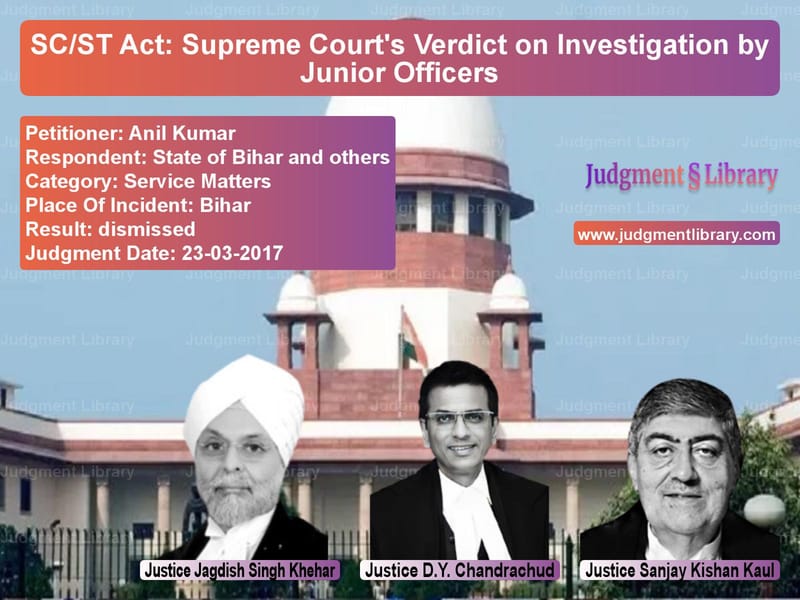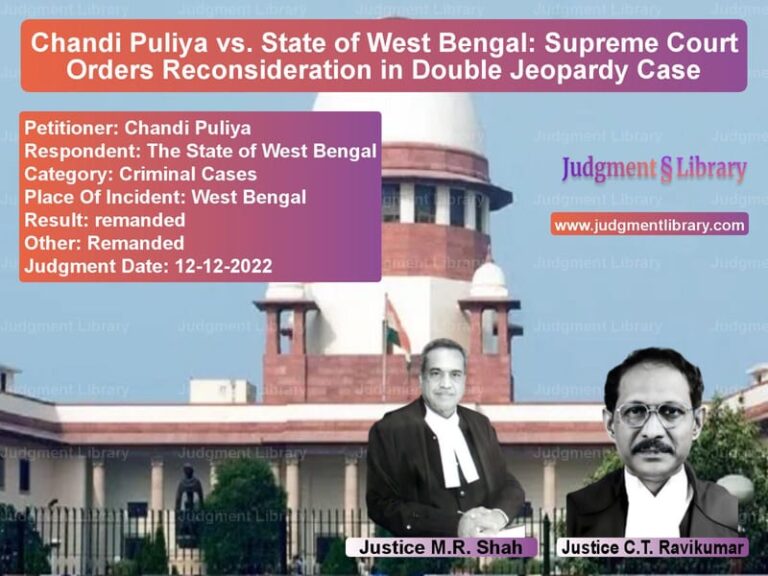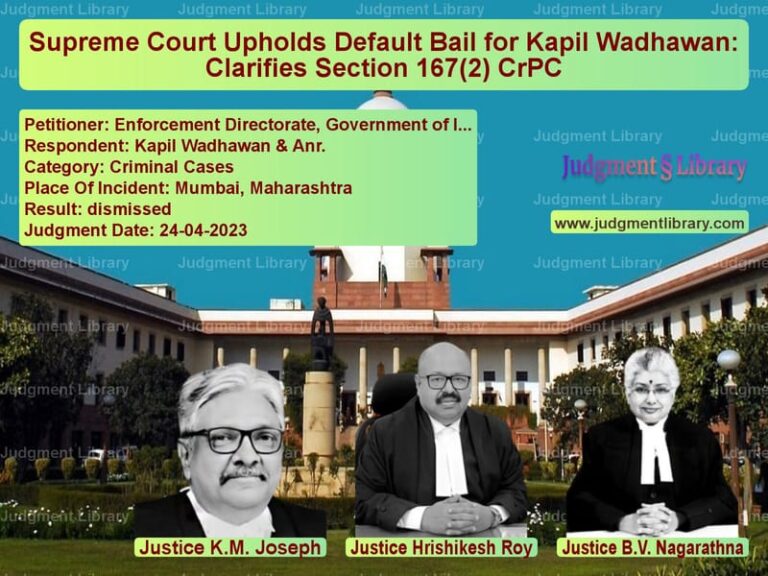SC/ST Act: Supreme Court’s Verdict on Investigation by Junior Officers
The Supreme Court of India recently adjudicated a pivotal case concerning the Scheduled Castes and the Scheduled Tribes (Prevention of Atrocities) Act, 1989 (SC/ST Act). The case arose from the Bihar Government’s notification that allowed police officers below the rank of Deputy Superintendent of Police (DSP) to investigate cases under the SC/ST Act, contravening Rule 7 of the Scheduled Castes and the Scheduled Tribes (Prevention of Atrocities) Rules, 1995 (SC/ST Rules). This judgment holds significant implications for how investigations under the Act will be conducted.
Background of the Case
The matter was brought before the Supreme Court when the petitioner challenged the validity of a notification issued by the Bihar Government under Section 9 of the SC/ST Act. This notification permitted police officers below the rank of DSP to investigate cases under the Act, contrary to Rule 7 of the SC/ST Rules. The High Court of Patna had upheld the notification but limited its retrospective effect.
Petitioner’s Arguments
The petitioner contended that Rule 7 of the SC/ST Rules explicitly states that only an officer not below the rank of DSP can investigate cases under the SC/ST Act. The rationale behind this requirement is to ensure that cases involving atrocities against SC/ST communities are handled with due diligence and without bias. Allowing lower-ranked officers to conduct investigations could dilute the Act’s protective provisions and lead to compromised investigations.
Furthermore, the petitioner argued that the Bihar Government’s notification contravened the legislative intent behind the SC/ST Act, which was designed to provide robust protection to victims of caste-based atrocities.
Respondent’s Defense
The Bihar Government defended its notification, arguing that Section 9 of the SC/ST Act grants the State Government the authority to alter investigation procedures. The State cited practical difficulties, such as a shortage of DSPs, which necessitated delegating investigative responsibilities to lower-ranked officers to ensure timely justice.
Supreme Court’s Observations
The Supreme Court analyzed the legislative intent behind the SC/ST Act and its Rules, focusing on ensuring justice for victims of caste-based atrocities. The Court made several key observations:
- Rule 7 of the SC/ST Rules mandates that only officers of DSP rank and above conduct investigations under the Act to ensure a high level of scrutiny.
- Section 9 of the SC/ST Act allows State Governments to make rules regarding procedural aspects of the law.
- The Bihar Government’s notification, while modifying the rank of the investigating officer, did not violate the core principles of the Act.
Precedents Considered
The Supreme Court referred to multiple precedents, including:
- H.N. Rishbud v. State of Delhi – A defective investigation does not necessarily vitiate a trial unless it leads to a miscarriage of justice.
- Union of India v. T. Nathamuni – An investigation conducted by an unauthorized officer does not automatically render the trial invalid unless the accused can demonstrate prejudice.
Final Judgment
The Supreme Court upheld the Bihar Government’s notification but ruled that it would take effect only from the date of its publication (August 9, 2008). Investigations conducted by officers below the rank of DSP before this date would be considered invalid only if the accused could demonstrate prejudice.
Implications of the Judgment
This ruling has far-reaching implications for law enforcement agencies and victims of caste-based atrocities. It establishes a balance between procedural integrity and practical realities, ensuring that investigative authority is not misused while also addressing concerns about delays in justice.
Conclusion
The Supreme Court’s ruling clarifies the scope of State Governments’ power to modify procedural aspects of the SC/ST Act while maintaining procedural safeguards. The ruling ensures that investigative integrity is upheld while allowing flexibility in law enforcement.
Don’t miss out on the full details! Download the complete judgment in PDF format below and gain valuable insights instantly!
Download Judgment: Anil Kumar vs State of Bihar and o Supreme Court of India Judgment Dated 23-03-2017.pdf
Direct Downlaod Judgment: Direct downlaod this Judgment
See all petitions in Public Sector Employees
See all petitions in Disciplinary Proceedings
See all petitions in Transfers Cases
See all petitions in Judgment by Jagdish Singh Khehar
See all petitions in Judgment by Dhananjaya Y Chandrachud
See all petitions in Judgment by Sanjay Kishan Kaul
See all petitions in dismissed
See all petitions in supreme court of India judgments March 2017
See all petitions in 2017 judgments
See all posts in Service Matters Category
See all allowed petitions in Service Matters Category
See all Dismissed petitions in Service Matters Category
See all partially allowed petitions in Service Matters Category







